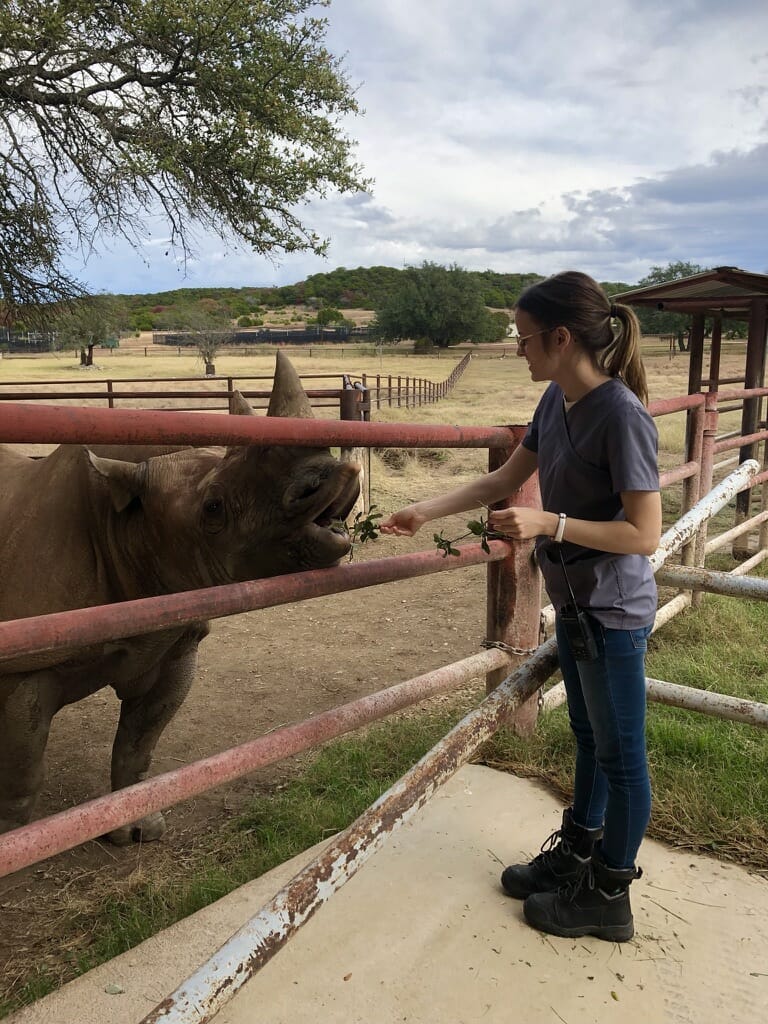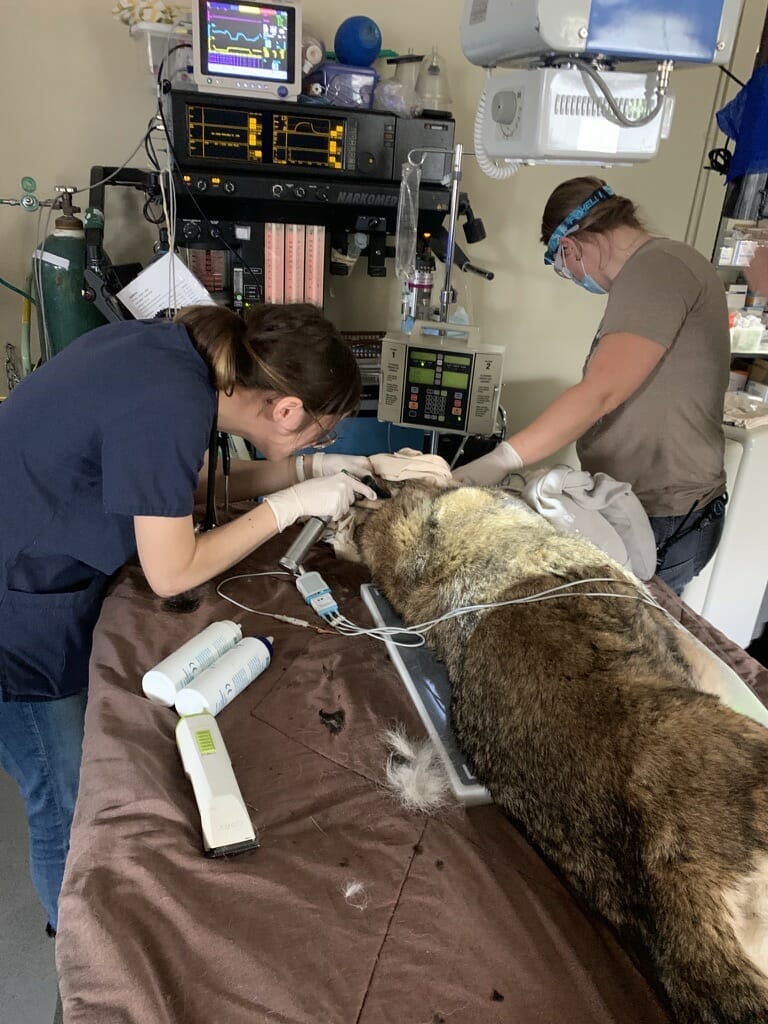Every six weeks Fossil Rim welcomes a vet preceptee, a vet student who is in their final stage of school and completing an experience-based externship. In general, vet school is not easy. Committing yourself to six weeks of intensive training and field work only adds to that. We’re proud of the work our preceptees accomplish, and their stories about life at Fossil Rim.
The Start of It All
Annabelle Vigneault has been passionate about animal health since she was 7 years old. This passion would move her across the continent from her home in Canada down to Texas, though it wasn’t exactly a smooth process. Annabelle has always taken an interest in exotic animals and hoofstock, so after hearing about our program at a conference in 2019, she applied. Then Covid hit. The Canada-USA borders were closed to help prevent further spread, and she was unable to travel. However, once restrictions were lifted, Fossil Rim accepted Annabelle and invited her to complete her preceptorship with our animal health staff.

What exactly does a preceptorship here look like? Annabelle says that the days’ schedules depend on what needs to be done. The “what” can be something like anesthetizing animals for procedures or working with endangered species like the Attwater’s prairie chicken. It’s exciting, and a little nerve wracking.
“I was a little bit nervous [in the beginning], but everyone was very helpful and made sure I settled in well,” says Annabelle. “On my first morning, we jumped in a truck, darted a male fallow deer, and transported him to the clinic for an epididymectomy. It was so exciting, and I knew right from the start that this preceptorship would be amazing.”
Learning Curve
This first experience set the tone for the next six weeks; each day was a different opportunity for hands-on learning. Annabelle says that she learned about our species and their care under the watchful eye of our animal health staff. One such species that required unique attention during her stay was one of our black rhinos, who suffered an eye injury and needed treatment for several weeks. After having the opportunity to learn how we encourage such a large animal to stand still for treatments (spoiler: it’s with apples and sweet potatoes) Annabelle says rhinos quickly became one of her favorite animals at Fossil Rim.
Caring for animals on property isn’t always as simple as feeding a singular animal medication, however. Many days were filled with challenges that come along with semi free-ranging animals.

“Our hoofstock live in large pastures with forests, so sometimes we were unable to find the animal that we were looking for and needed to come back later.” says Annabelle.
It’s true that traditional zoological facilities have the ability to access their individual animals whenever necessary. Fossil Rim, on the other hand, provides acres of land that our animals arguably know better than we do. Luckily, our vet staff are up to the challenge. We believe the non-traditional landscape only adds to the lessons our preceptees can learn. These lessons, along with quiet mornings Annabelle spent watching wildebeest and oryx grazing, confirmed what she already knew. Zoological medicine is what she is truly passionate about.
Moving Forward
Now that she’s finally heading back into the world, Annabelle is planning to apply for a year-long veterinary internship. Her ultimate goal is to complete a residency in zoological medicine.
“I aim to have the expertise to practice high quality medicine on a broad range of species,” says Annabelle. “While also participating in research and conservation projects.”
Finally, Annabelle had this message for the staff who helped her grow during her time here:
“I am incredibly grateful to have had the opportunity to be part of the Fossil Rim Wildlife Center team. I thank everyone for their kindness and education. It was a memorable experience and I highly recommend it to any veterinary students interested in gaining more experience in exotic hoofstock medicine.”
Although we’re sad to see her go, we’re proud of Annabelle for what she’s accomplished here. We wish her luck and look forward to her future in the field of zoological medicine.

